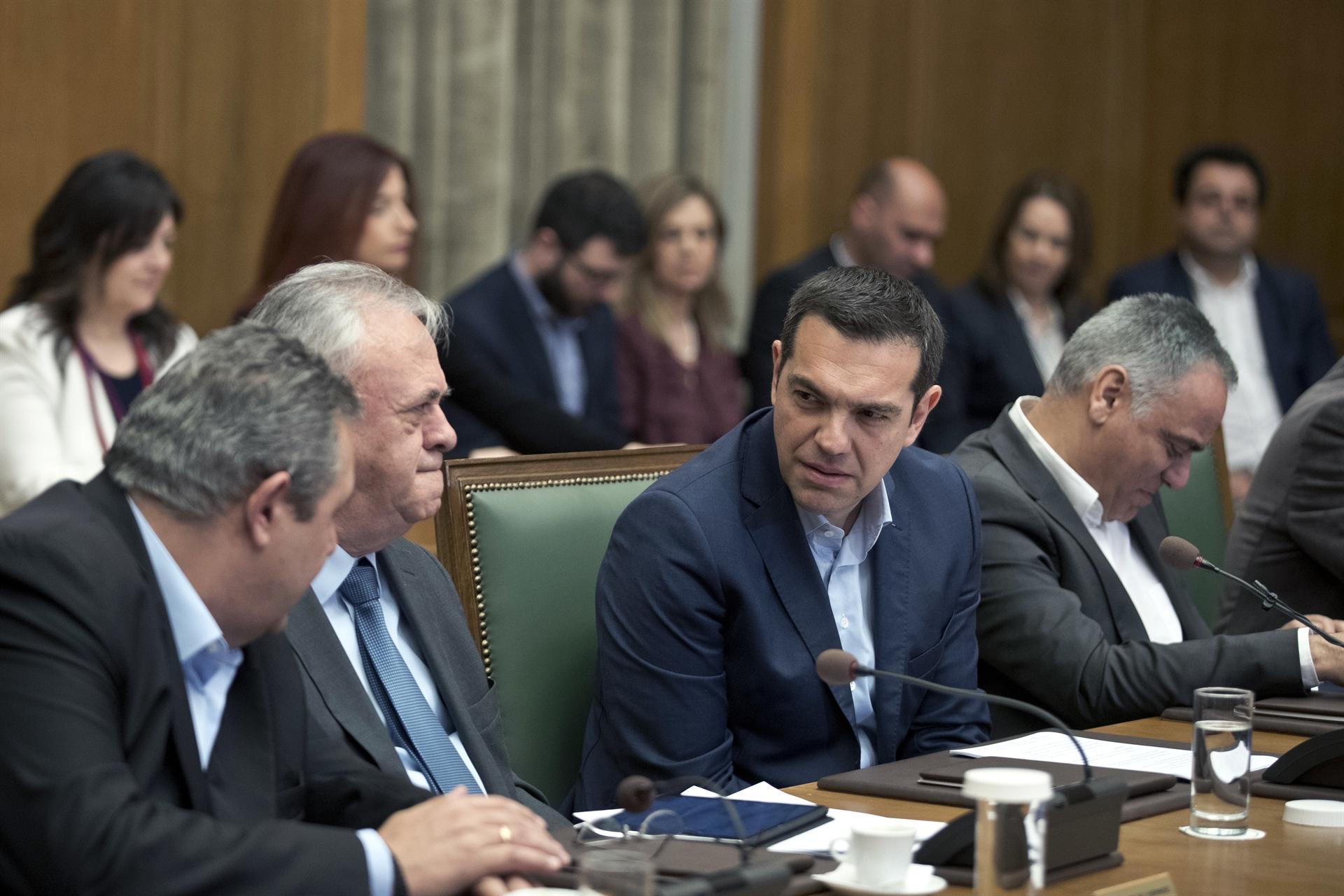
Turkey and Greece have become involved in an increasingly bitter war of words, with Ankara demanding the extradition of runaway suspects and Athens urging its neighbor to release two trespassing soldiers.
Greek Prime Minister Alexis Tsipras called on Turkey on April 3 to release two Greek soldiers detained on Turkish territory in March.
“[Turkey] has intensified its provocations and is escalating the situation on all fronts,” Tsipras said.
Athens says the soldiers crossed into Turkey by mistake while following the trail of suspected undocumented migrants. Turkish courts have ordered their detention on suspicion of illegal entry and attempted military espionage.
Ankara should, as a gesture of good will, release two Greek soldiers who were detained after crossing the border into Turkey on March 1, Tsipras told a meeting of his cabinet.
“It is unfair that they are being held. Just as we, in the past, returned Turkish soldiers who may have crossed the Greek border by a few meters, I expect the Turkish president to today do the same,” he said.
“The judicial process should be expedited to allow these two officers, who did nothing more than their duty, to come home,” he added.
Turkey criticized a Greek Prime Ministry statement on April 2 regarding the two soldiers.
The Turkish Foreign Ministry said in a statement that the rhetoric in the press statement issued on April 1 demonstrates that the Greek authorities have started to increasingly lower the level of discourse against Ankara.
“These remarks, which are not in line with governmental responsibility, cause great concern,” the statement said.
It added that Athens only brought “the principle of rule of law to the fore when it suits its own interests.”
“But when it does not, Greece has no qualms about totally disregarding this principle by not even implementing international courts’ verdicts. Recent history reveals this,” the statement said.
Tsipras’ office stated on April 2 that Turkish President Recep Tayyip Erdoğan “has to give explanations on the reason why Turkey is still keeping in custody two Greek military officers who have done nothing more than crossing into Turkish soil by a few meters while they were searching for illegal crossings.”
Separately, a Greek court rejected on April 3 Turkey’s extradition request for a member of the outlawed far-leftist Revolutionary People’s Liberation Army-Front (DHKP-C), according to Greek ANA-MPA news agency.
Ali Ercan Gökoğlu of the DHKP-C was arrested last November in Athens and has since been jailed pending trial.
Gökoğlu’s arrest, along with eight others, came days before Turkish President Recep Tayyip Erdoğan arrived in Athens for an official visit.
Before the decision of the Larissa Appeals Court on Gökoğlu, the prosecution argued that the suspect should not be extradited because “there is no guarantee for a fair trial,” if returned to Turkey, it was reported.
The Greek Appeals Courts also previously denied extradition requests for four other DHKP-C members: Hasan Biber, Hazal Seçer, Mehmet Doğan, and Şadi Naci Özpolat.
Turkey’s unfulfilled extradition demands for suspects of the July 2016 coup attempt is another issue of tension between the two neighbors.
A Greek appeals court on March 16 rejected a Turkish demand for the handover of eight Turkish soldiers accused of having a direct role the failed coup.
The ruling marked the third extradition request that the Greek courts have refused, in an issue that has strained relations between the two NATO allies.